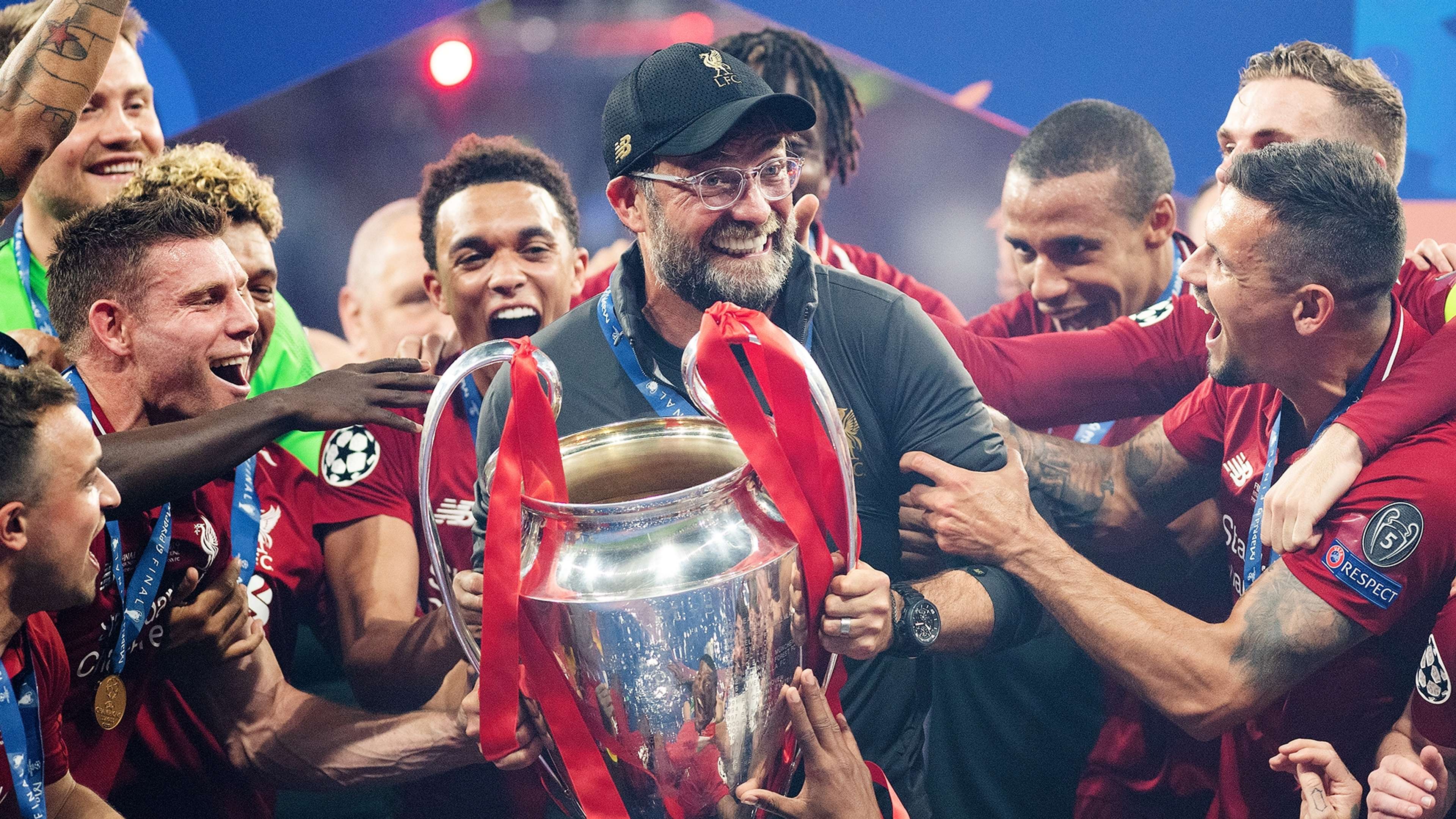“Ah, nice, no cameras!”
Jurgen Klopp is in relaxed mood. Tanned and smiling, the Liverpool boss takes his seat for an exclusive, in-depth chat with Goal.
It is not his first interview of the day, nor will it be his last. We are in the heart of Manhattan, at the glitzy Lotte Palace hotel. The sun is shining and New York, as ever, is buzzing. In the nearby corridors, Klopp’s players laugh and joke as they arrive for a team lunch. Later, they will play Sporting CP at the iconic Yankee Stadium.
The Reds’ tour of the USA was far from perfect. There were injuries and there were defeats. Players were missing and new signings were conspicuous by their absence. Questions were asked of Klopp, of the squad, of the club.
This, though, is a happy camp, and why wouldn’t it be? Liverpool stand now as one of the world’s elite sides. European champions in June, they have their eye on more glory this season, at home and abroad.
Next Match
Focus and desire drips from Klopp’s players. They are different characters from different backgrounds, with different stories to tell, brought together by a common goal. They don’t just want success, they crave it. “We’ve got a taste for it now,” admits Klopp.
“F*cking mentality giants,” he called them last season, astounded by his team’s ability to maintain belief and concentration, to pick themselves up off the floor no matter what. “What they did was unbelievable,” he says now. “Just unbelievable.”
Unexpected, too, you could say. This, after all, is not a team everybody believed would one day reach the summit of European football.
Liverpool have spent money to get there, of course. But while they have recruited world-class players, they have also created them. Their development, as individuals and as a collective, is testament to Klopp’s remarkable mix of motivational and tactical genius. If the Reds really are "mentality giants", it’s because he has made them that way. As Tom Werner, his chairman, has said, Klopp could probably be a psychologist if he wanted.
“Look, if a player has no talent in football, I can’t make him a great player,” Klopp says. “But in terms of mentality, I think human beings have it. I think it is in them.”
To illustrate his point, he paints a rather vivid, dramatic picture.
“The explanation for me is this," he says. “How long can I hang on the edge of a mountain with one finger, when I will only save my own life? I have no clue, maybe 10 seconds, maybe a little longer?
“But if, on the other hand, I have my little boy, and I have to save him, I could hang there for three days – in my imagination, anyway. I’d do it for him, not for myself.
“The more you realise the different things you do for different people, how valuable it is, the easier it is to go over your limit. These boys have that talent.
“They would hang on the mountain edge for four years for each other, I have no doubt!”
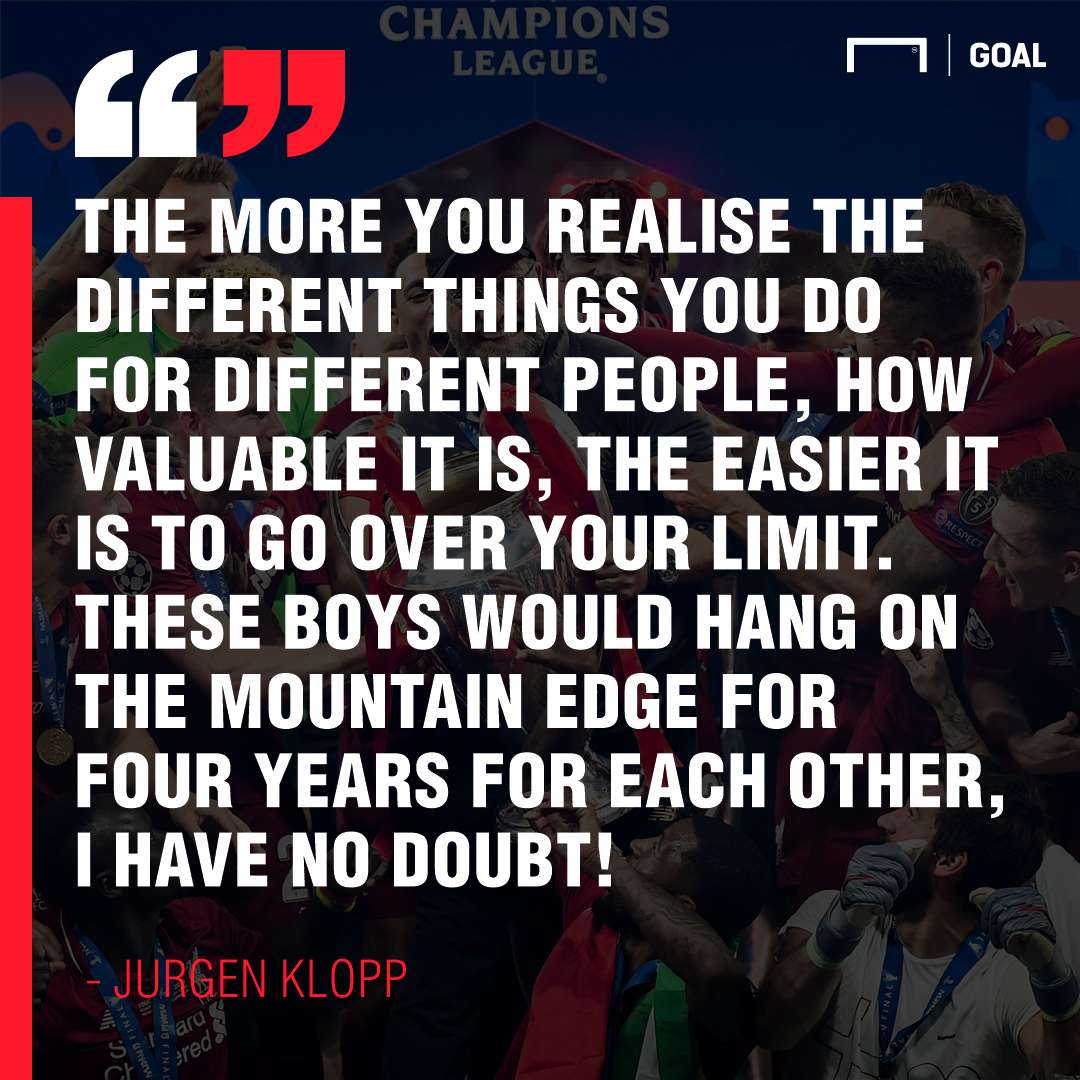 Goal
Goal
So, what is it that has brought this change in mentality, then? How is it that players who were cast aside, written off, criticised, relegated even, can find a way to rise to the level Liverpool have reached over the past few years?
Can it be coached?
“Of course, you can learn about mentality,” Klopp says. “We are not ‘mentality giants’ when we are born. Nobody is. Life makes us what we are.
“In this case, football and bad experiences can help us a lot. You lose a game and it’s not so nice, but if you use it, it can make sense. If you don’t use it, it’s useless.
“The little defeats in life, the little defeats in the outside world and in football, they can make you stronger, they can create mentality. And if you then put the different parts together, different people with different stories, it can create one mentality. It’s really nice to be a part of that here.”
For a moment, he returns to October 2015, when he first arrived at Anfield. He remembers the club he joined, the squad he inherited, the atmosphere he walked into. It was a different Liverpool.
A number of those players – Jordan Henderson, Adam Lallana, Dejan Lovren, Joe Gomez, Roberto Firmino, James Milner – have been there since day one. Others have come and helped raise the bar through performances and attitude. It was a slow process which has gathered serious pace over the past 18 months.
“When I came in, I said that nobody likes this team, not even the team!” Klopp smiles. “That was the truth, but that’s completely different now.
“It’s development, it’s time, patience that you give the boys.”
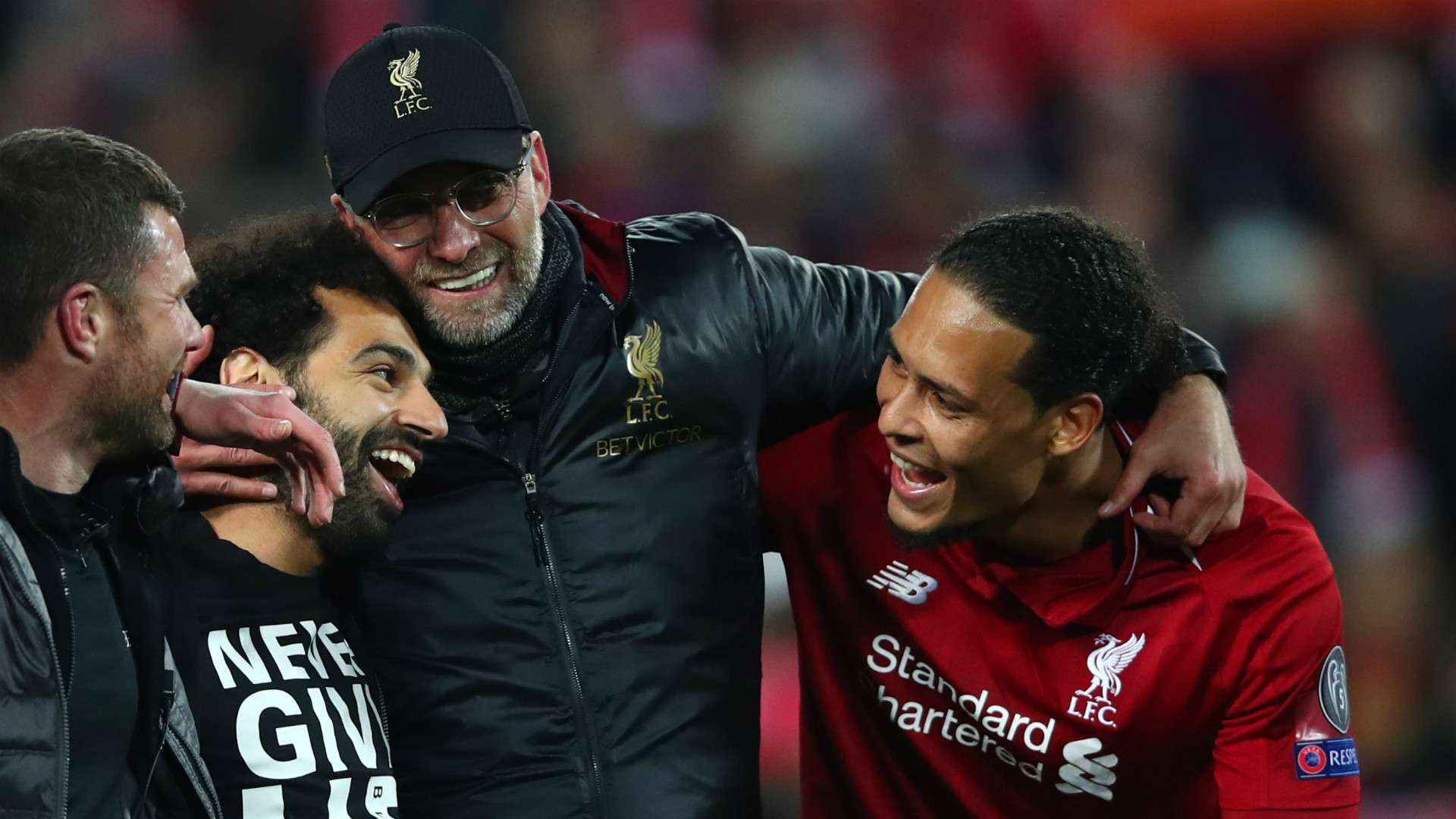 Getty Images
Getty Images
He pauses, before adding a crucial caveat.
“And it’s bringing quality in as well.”
That quality has been there for all to see. Liverpool’s recruitment, criticised for years and with some justification, has been tightened significantly in recent years. Bit by bit, signing by signing, they have assembled a team, a squad, the envy of Europe.
They’ve spent big when necessary – Alisson Becker and Virgil van Dijk were record buys at the time, while Naby Keita and Fabinho were far from cheap – but Klopp, who has been content to avoid a similar spending spree this summer, argues that it is about far more than chequebook management.
“We had only two signings where we thought ‘Right, they absolutely have to be a slam dunk,'” he says. “That was Ali and Virg.
“The others, they had to develop. They were still kind of projects, where we had to see if they could do it in the Premier League, if they could do it consistently, all that stuff.
“Gini Wijnaldum and Andy Robertson, for example, they were relegated and they came to Liverpool. They were easy picks for us, but they were not obvious picks from the outside. We had to work with these players, all of them.”
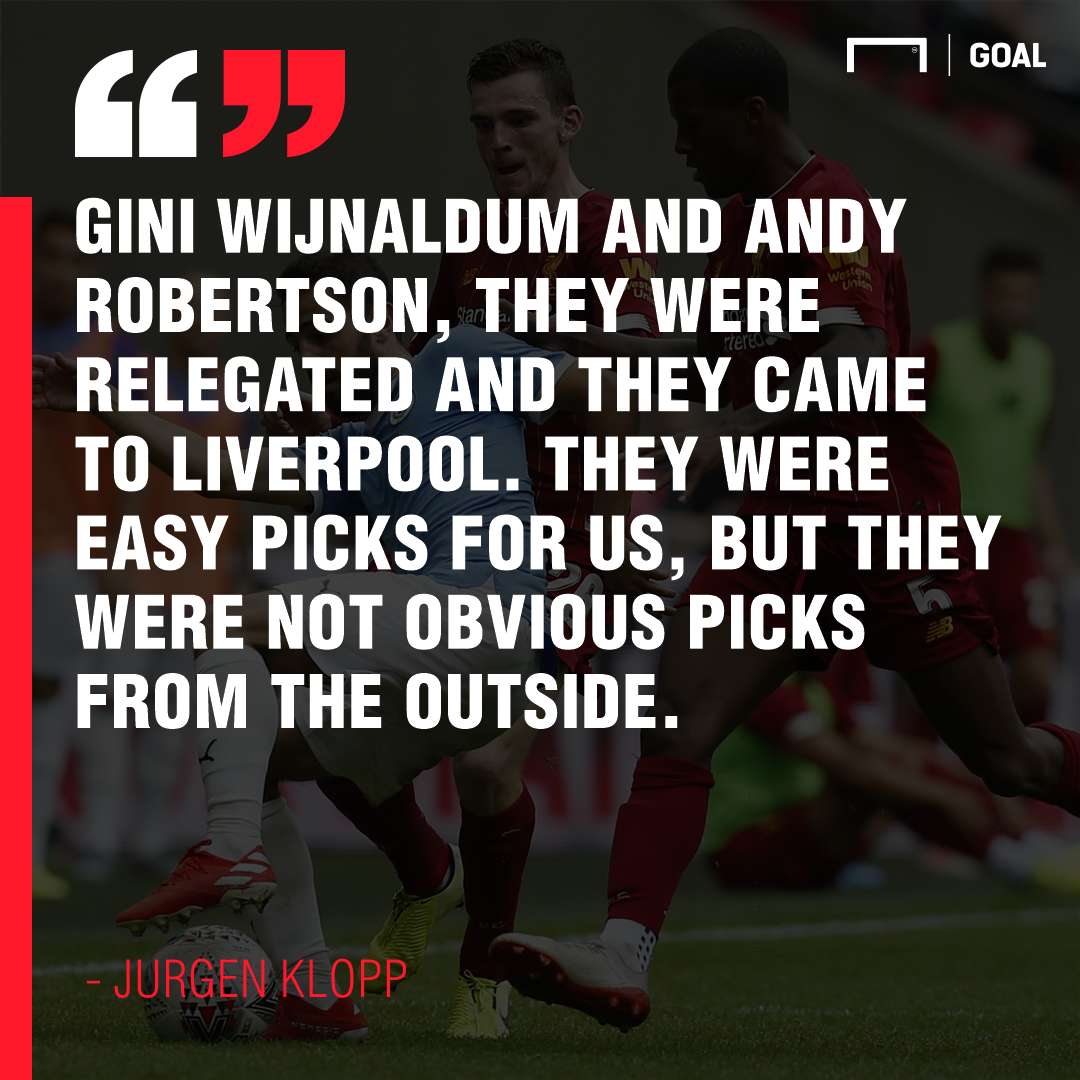 Getty
Getty
That work extends far, far beyond the obvious. It comes on the training field, where intense, repetitive training sessions prepare players technically and tactically. It comes from the fitness coaches and medical staff, whom Klopp believes are among the best in the business.
And it comes psychologically, from the environment he and his staff have created. Ask any Liverpool player about their professional life and they’ll tell you that they love coming to work, they love being at Melwood.
That environment is led by the manager. Klopp may credit his senior players – Henderson and Milner, in particular – for setting the dressing-room culture at Liverpool, but everything starts with him.
It is his ability to connect with players, whatever their background, whatever their mindset or their sense of humour, which stands out. The ease with which he can build and maintain relationships sets him apart from so many of his peers. He is, as Henderson says, "a player's manager".
“I like people,” Klopp says, asked to put his finger on why that is. “Life is about relationships. Not only with players, but people in general.
“With players, it’s the same. It all starts with the phrase I used when I first came. I’m the friend of my players, but not the best friend.”
Not being their best friend, he says, is a crucial distinction to make “because of the harsh decisions that you have to make over the years”. If it sounds like Liverpool’s players are always completely on board with their manager, don’t be fooled. He isn’t always the most popular man at the club.
“There are always a few ups and a few downs, which is normal,” he says. “But, in general, it’s about respect. They have to respect me as a human being and as their boss, and I have to respect them.
“It depends how you look at it. The decisions I make can be always hard or always easy. I cannot really make a mistake when they are all fit, because of the quality of the team. The decision will always be right, and the others have to respect it and accept it.
“They want to play more often, of course, but they know we have 11 in the line-up and we will need more than 20 over the course of a season. And if you are in a very good shape, you will have a very good chance to play a lot of games. Even if you have a struggle here or a struggle there, you will still have the chance to play games.
“They appreciate the situation a lot. They look left and right and see world-class players, and that is a good situation to be in!”
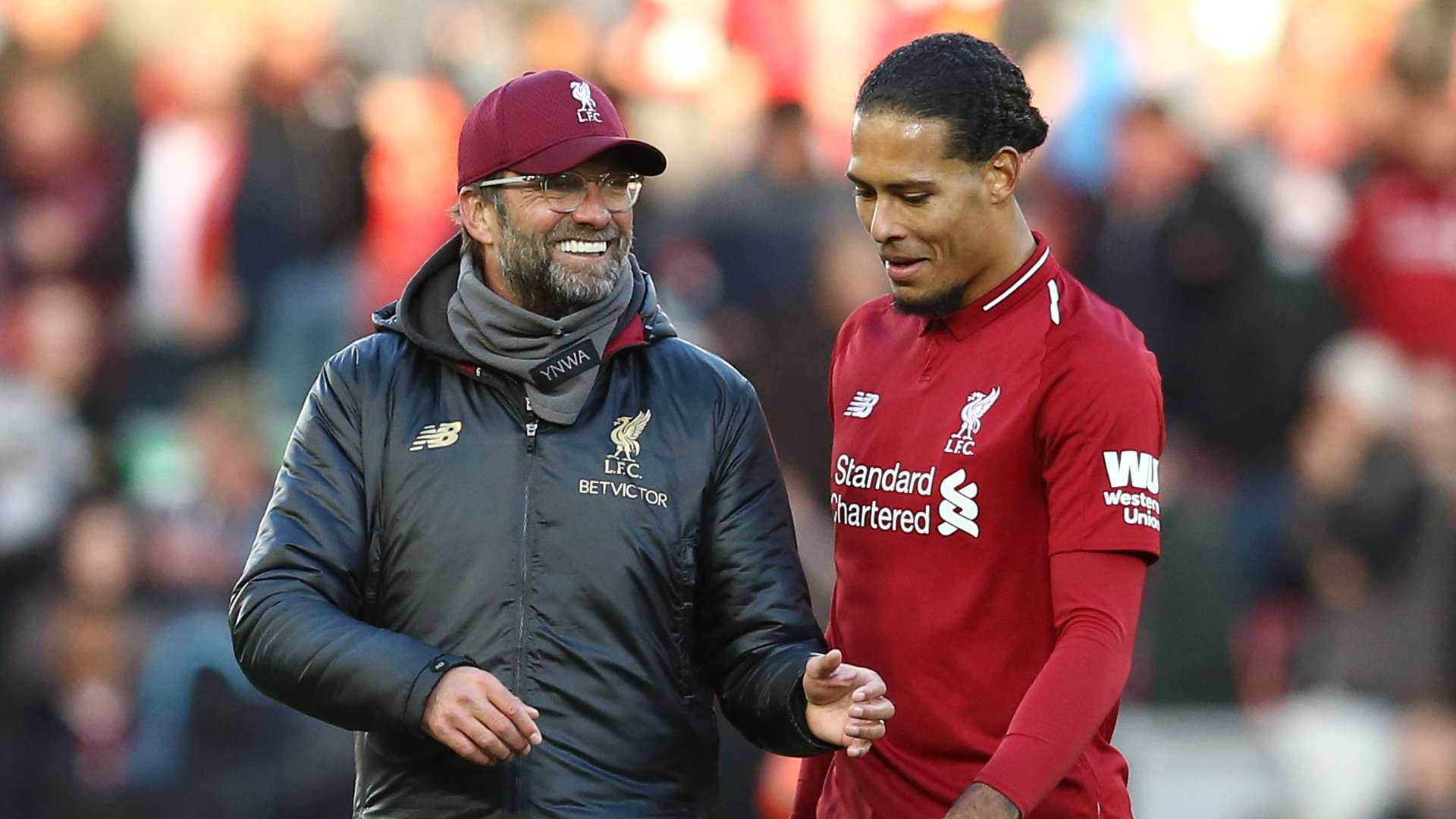 Getty
Getty
As for Klopp, he is able to reflect on the journey he and his players have been on over the last few years. He has seen this team evolve. He has seen them suffer and recover, seen them come together, grow. There is genuine affection there.
“With any relationship, friendship, work colleague, whatever, the proof is always ‘How is it when it’s not going so well?’” he says. “And these were the moments when we came closer together.
“We lost the final, we lost three finals, and the boys were still able to look in each other’s eyes.
“They like to be around each other, and I like to be around them sometimes too.”
For a second, just a second, he pauses, lost in his thoughts. Then he’s back, smiling again.
“Yeah, I like what I do," he adds, unprompted. "How could I not?”

